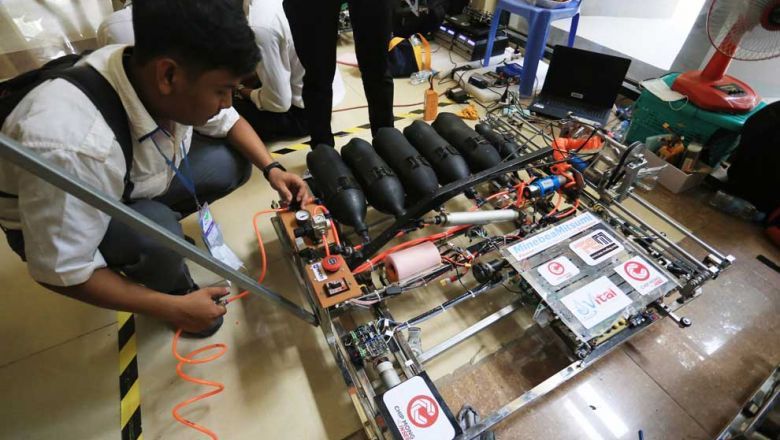Cambodia aims to re-skill workers to boost employment
Minister of Labour and Vocational Training Ith Sam Heng said more than 6, 000 workers who were suspended or lost their jobs due to the Covid-19 pandemic had now attended a four-month special training course, while 68, 000 more workers finished soft skills training.
Sam Heng made the statements during a live Facebook stream of a speech to celebrate the 4th annual National TVET Day (Technical and Vocational Education and Training), which is held annually on June 15.
Sam Heng said 6, 500 workers who were suspended or lost their jobs due to the Covid-19 crisis received special training that was flexible and focused on quality. Upon graduation, they were granted a special technical and vocational certificate.
He said the workers also received a stipend during their study period, with each participant receiving 200, 000 riel ($50) per month to give them the opportunity to gain a specific skill for a new job that is in high demand now and expected to remain so in the future.
At the same time, 68, 000 factory workers received soft skills training over the same period.
Sam Heng said that at the end of 2020, the ministry had launched a five-year masterplan for the development of TVET institutions from 2021 to 2025, which plans to spend about us$493 million, focusing on four strategies.
He said: “The four strategies are: building and improving the physical infrastructure at TVET institutions; improving equipment and training materials; strengthening the capacity of leaders, managers, specialty officials and technicians; and increasing the quantity and quality of technical and professional skills in a gender-inclusive manner.”
Sam Heng also mentioned the efforts of the labor ministry to promote technical and vocational education and training to promote the development of a high quality and efficient skilled workforce to meet the needs of the domestic and foreign labor market inside and outside the country.
“The global Covid-19 pandemic has impacted public health, the economy, our social fabric, education and training issues, the daily lives of the people, the loss of many jobs and it has been an impediment to the development of Cambodia, ” he said.
Sam Heng said for the academic year 2020-2021, as of June, nearly 40, 000 trainees and students have been studying remotely or online at TVET institutions in public, private and NGO programmes and associated schools across the country.
Phearum, a worker at a factory in Phnom Penh, considered providing technical and vocational training to the workers as a bonus that will help improve their lives.
“If workers know other skills besides working in a factory, it is much better because they can earn a living when the factory is closed or their employment is terminated, ” he said.
Dy Thehoya, project officer for labour rights organisation Central, said this is a good step that the ministry has taken and urged technical and vocational education and training be pursued by more people.
He said however, that relevant institutions should value these skills in a way that can be compared to general education so that people recognise the value of studying technical and vocational skills.
Thehoya also urged the labor ministry to focus on training people in skills to meet market needs, especially youths, to reduce the number of foreigners in the skilled workforce and replace them with Cambodian nationals.
“Like in the construction sector, I see that Cambodian people do construction work, but they are not skilled workers. Vietnamese or Chinese nationals always come here to do the skilled work, ” he said.
“Hopefully, when [those in vocational training] graduate, they can get decent jobs and salaries to provide for their family members, ” Thehoya added.
Theav Oeang, owner of the E-Siri Free Company Ltd, said that people with technical skills are in demand in the labour market because Cambodia needs these resources for development.
“Our people don’t like to learn technical skills because they often find that skilled people still do not get paid what they are worth. But the labour market here needs more skilled workers, so that may change, ” he said. The Star Online




